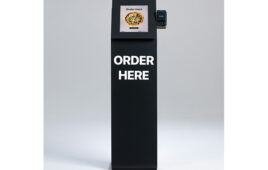 Convenience store operators asking themselves whether a proprietary foodservice program is right for them are really asking another question: is trying to reinvent the wheel worth it?
Convenience store operators asking themselves whether a proprietary foodservice program is right for them are really asking another question: is trying to reinvent the wheel worth it?
Oddly enough, in certain circumstances, it can be.
With foodservice playing a more important role than ever before in the convenience store channel, originality and uniqueness may set an operator apart from competitors — however, it also has the potential to be a significant burden.
In general terms, a co-branded foodservice program provides product recognition and enhances both consumer confidence and consistency in the quality of the offering. The argument on the other side insists that a proprietary foodservice concept carries with it the cache of uniqueness and can be more representative of the c-store’s culture and personality.
The knowledge and experience to design and execute a proprietary foodservice program can be provided by brand-name operators, while retailers going it alone will need to import or acquire it — potentially a time-consuming and/or expensive undertaking.
A co-branded program makes good use of existing brand equity, something that can provide huge dividends not only due to name recognition but consumer confidence. A known quantity is almost always more reassuring to consumers than an unknown one.
Another big plus when opting for a co-branded program is the benefit of being handed a turnkey program, complete with recipes, equipment, suppliers, marketing program, training manuals, signage, etc. Having that preexisting template can allow an operator to get up and running more quickly and with proven systems and products.
On the other hand, a co-branded program places much of the control in the other brand’s hands. It may be perceived by consumers as one size fits all, and depending on the concept, runs the risk of being part of geographic over-expansion. The costs of food items, marketing, promotions, and licensing and franchise fees can also weigh heavily on the c-store retailer’s bottom line.
At the same time, the proprietary approach can prove more labor- and time-intensive and invariably brings with it a host of operational challenges.
It also precludes any support from a branded foodservice operator and may command less attention from suppliers. Thus, the choice of which path to follow must be weighed carefully and be tailored to the convenience store’s geographic location, financial status, competitive position, operational strategy, corporate culture and long-term plans.




